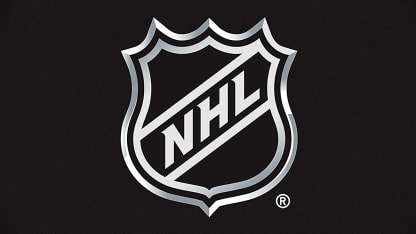NHL players close to 100 percent vaccinated, Daly says
Deputy commissioner optimistic response, protocols will make difference in 2021-22 season

"Our latest information really suggests 10 players or less will not be fully vaccinated by opening day of the regular season," NHL Deputy Commissioner Bill Daly said at the NHL/NHLPA Player Media Tour on Thursday.
"Now, that is subject to change, obviously, because it's dependent on who makes the roster and who doesn't make the roster and what the status of those players are, so it's really a projection at this point.
"But I think we're safe in saying that it's going to be less than 15 [players]."
There could be up to 736 players on NHL rosters when the season begins, with a maximum of 23 players on each of the 32 teams. Daly said up to 25 teams should have full vaccination status on opening day.
"We've had some player reluctance on vaccination," Daly said. "Our latest information is that reluctance is receding. Some players who were holdouts are going to go forward and get vaccinated, so hopefully at some point in the season we'll have 100 percent fully vaccinated."
The numbers are a result of buy-in from the players and COVID-19 protocols that incentivize vaccination. The protocols were designed in consultation with medical experts and negotiated between the NHL and NHLPA.
"A 98-99 percent vaccination rate League-wide is tremendous," Daly said. "Nobody who deals with the players on a regular basis under protocols can be unvaccinated, so those people have to be vaccinated as well.
"It creates a safer environment for everybody. It gives us the best chance to get back to normal and to grow the sport and to protect everybody's health and safety in doing that.
"I give the players and the Players' Association tremendous credit in encouraging players, educating players, making sure they're aware of the benefits of being fully vaccinated and the importance of being fully vaccinated to move the sport forward."
COVID-19 continues to affect the NHL in many ways even as the League moves toward normalcy and an 82-game regular season for each team after two seasons disrupted and shortened by the pandemic.
Daly said fans will need to be fully vaccinated to attend games in at least 10 NHL cities.
"That number probably will grow," he said. "I do expect it to kind of be the common standard. It's typically set by the club, but it's done in conjunction with local health authorities. We support it, so I'll start there. But a lot of it is driven by health policies in some of our cities as well."
The 2021-22 regular season will begin about a week later than usual, after the 2021 Stanley Cup Playoffs ended July 7.
Daly said the last possible day of the 2022 Stanley Cup Playoffs is scheduled to be June 29 because of the pandemic and a break for the 2022 Beijing Olympics. Free agency will be pushed back from the usual July 1. The 2022 NHL Draft will take place July 7 and 8.
"We'll have to negotiate a new set, a third new set, of transition rules and critical dates with the Players' Association," Daly said. "(It will be) a little less challenging this year than the last two years, and we're only shifting everything basically a week to 10 days."
Daly said he has been asked to name the NHL's biggest challenges for the 2021-22 season other than COVID-19.
"We really can't answer that question," Daly said. "You can't say 'other than COVID,' because COVID really defines everything we have done and, I think, will continue to do for the foreseeable future, and that includes the season. …
"As the world continues to evolve and the variants become present and the infection rates remain high, COVID continues to be an important thing that we have to guard against, and those protocols become that much more important.
"We're hopeful and expect to get an 82-game season in, we expect to play a full Stanley Cup Playoffs, and we expect to finish close to kind of a normal calendar for the first time in three years. And that all will be an accomplishment, and we'll do that hopefully in an environment where we have full buildings in most of our cities, so we're excited about that.
"But COVID continues to be a challenge."

















